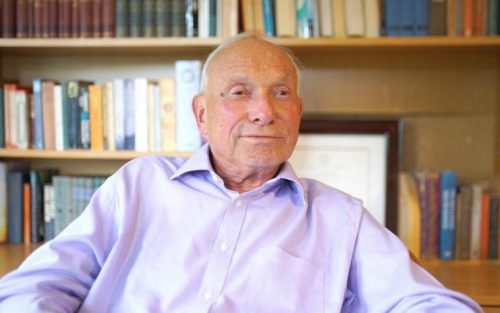
Peter Kirstein in 2019. Credit via the Kirstein family.
We at PETRAS are saddened to hear of the passing of Peter Kirstein. Peter has long had a meaningful relationship with UCL, and more recently had been involved in work with PETRAS.
Peter, often described as the father of the European internet, set up Britain’s first connection to the ARPANET, a precursor to the Internet, at his UCL laboratory in 1973. His research group produced the first European implementation of the Transmission Control Protocol (TCP), which ensures the reliable delivery of data across a network, and working with Stanford University conducted the first international test of TCP/IP. TCP remains the principal protocol for reliable data transfer in use in today’s Internet.
Peter joined the University of London Institute of Computer Science in 1967, first as Reader and then as Professor of Computer Communications Systems. He transferred to the new UCL Department of Statistics and Computer Science in 1973, before setting up the Department of Computer Science in 1980, serving as Head of Department for its first 14 years.
He received the SIGCOMM Award in 1999 for his contribution to the international development of the Internet, was awarded a CBE in 2003 for his work on the Internet, and was named an Internet Hall of Fame Pioneer in 2012.
Professor Jeremy Watson, Director of PETRAS, said:
“I had the privilege of working with Peter Kirstein on PETRAS since its inception, not having met him before. First impressions are important, and I was immediately struck by his wisdom and humility combined with true gentility. All this despite the honour due for his pivotal and hugely important work in developing the infrastructure of the internet. His fluency of knowledge and insight in that area greatly benefited our collaborative research into Cybersecurity for the Internet of Things.
Peter’s life will be celebrated by PETRAS, as well as by the global internet research community. Until very recently Peter was generously giving time to his researchers and colleagues. I am left with memories of inspiring conversations and fascinating insights into the development of the internet.
I shall miss Peter’s deep wisdom and candid advice. He was an intellectual giant.”

